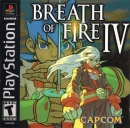Aeolus451 said:
The left in general are collectivists. Much like the far right is.
I think that the majority of feminists are the first ones I mentioned and the rest are actual feminists in the activist sense comprised of those sub-groups. The only type of feminism that's alright in my opinion in the west are sex positive feminists. 😸
I don't like mainstream feminism because the goals of feminism in the west have largely been accomplished (equal rights/equal opportunity), they intentionally avoid cases where feminism is needed because of "intersectionality" or it goes against what libs want which makes them hypocritical, they're not interested in actual equality between men and women because they want the perks of being a woman and being a man with none of the hangups from either. They're at the point where they have to make up shit just to show that it's still needed. They're not needed in the west as is though.
I can see your point about rad fems not being liberal. As much as I disagree with rad feminism on everything, ironically they have more legitimacy to exist than mainstream feminism because of their goals (which don't have a chance of being accomplished) not being attained and actually trying to accomplish them. 😽 I do agree with them a bit on transgenderism. I believe it's not fair to women to allow trans women to compete against them in athletic competition because their physiological advantages still exist even on hormone treatment. I'm not aware of those feminists nor have I dug that deeply in that type.
I think feminism in the west has become detrimental to women in general and to the relationship between women and men.
|
I'm shocked, shocked, that that (the last line) would be your conclusion as a man.  Just as I am shocked that the 'non-frigid', 'sexy' types are your favorites because they won't challenge your sexual interests. Who would have thought? But don't you ever think that maybe you might possibly be projecting what are actually your own interests onto women for self-interested reasons?
Just as I am shocked that the 'non-frigid', 'sexy' types are your favorites because they won't challenge your sexual interests. Who would have thought? But don't you ever think that maybe you might possibly be projecting what are actually your own interests onto women for self-interested reasons?
Aaaanyway, I'm not a big fan of "intersectionality" or its ideological forerunner, identity politics, either, but I believe we see that matter differently. When I pointed out that radical feminists embrace a collectivist outlook and approach, that was to further logically contrast our view and approach from that of liberals and conventional leftists, whose outlook on these things is shaped by individualistic and sectionalistic thinking.
For the liberal feminist, the choices of each individual women are supreme because supposedly they take place in a vacuum, not within the framework of a male-dominated culture, economy, and system of governance. To illustrate the different way that radical feminists think about these things: while a few women can make a lot of money by being prostituted and calculate that to be worth the personal cost to them, the consequences of that choice are detrimental to women overall in a thousand ways. There is more than just the interests of those few women to be considered.
For the Marxist feminist, similarly, it is of first importance to break down the interests of women sectionally (what about black women? What about young women? What about poor women? What about women with disabilities? Etc.) before even considering the shared interests of women as an entire group. The result of this type of thinking having become dominant in the women's movement over the last few decades has been heavy infighting -- women becoming focused on fighting each other rather than mobilizing around shared interests -- and that has turned the younger generation of women off to the movement, I believe, and understandably so! Radical feminists prioritize the general interests of women as a group over those of individuals or sections.
Similarly, today we see that lesbian activism is no longer approached as part of the feminist movement like it largely was during the second wave, but rather now is seen as part of the "queer" movement that is shared with gay and trans-identifying men, much to its detriment. Lesbian culture has all but vanished entirely since that general transition and today half the lesbian population (the "butch" kind) is being taught that the reason they're interested in other women is because they are actually men who need to consider adopting a new identity and injecting themselves with testosterone. Those who refuse to do so, meanwhile, are being taught that, to put it in the words of one, "genital preferences are transphobic", i.e. being an actual lesbian is no longer politically correct.
You can feel it even in the types of arguments we use to defend lesbianism anymore. The "queer" movement depends on arguing that people are "born gay" and can't change, that sexual orientation is outside our control, as a defensive argument in the context of a society that stigmatizes same-sex relationships, especially between women, but lesbian feminists have traditionally regarded sexual orientation as a product of conditioning and that one can re-condition themselves and surveys of women who identify themselves as lesbians continue to bear out that most of us still believe that deep down. The "born gay" argument is a defensive one that psychologically closes off the community and keeps it small. We need to go back to recognizing that lesbianism is an option available to all women!
And it's getting worse. Having embraced gender-based identification already, now we are beginning to see the adoption of "non-binary" gender identities, as apparently there is one corresponding to each possible nuance of human behavior and attitude. The logical conclusion of this type of postmodernist thinking has been well-articulated to me by one purveyor thereof: "Women do not exist." You can quite easily see how that mentality will render it utterly impossible to discern what our shared interests are and to mobilize as an oppressed class for the advancement of those interests! That is the intellectual place where this is all headed! And I think all this illustrates the basic importance or refocusing the women's movement on women, women only, and women collectively. Otherwise it has no future.
The general persuasion of radical feminists is that the women's movement ceased to exist as a women's movement sometime around the mid-1980s. I imagine you're probably tired of digesting information at this point, but in this connection, I would really recommend checking out this podcast interview with Sheila Jeffreys (one of our major thought leaders at present) if you have 30 minutes to spare: https://www.feministcurrent.com/2016/10/18/podcast-sheila-jeffreys-impact-neoliberalism-identity-politics-womens-movement/ ...I recommend it because she delves into what led to this ideological transformation of the women's movement: the popularization of identity politics, "intersectionality", the replacement of Women's Studies with "Gender Studies", the popularization of the term "gender", etc. (The short version, if you don't have the time, is that it can be traced to the popularization of neoliberal ideology around the start of the 1980s and the restructuring of Western universities to function like business corporations. But it's really worth hearing her articulate the details because she does so very well.)
Last edited by Jaicee - on 02 June 2018





















































